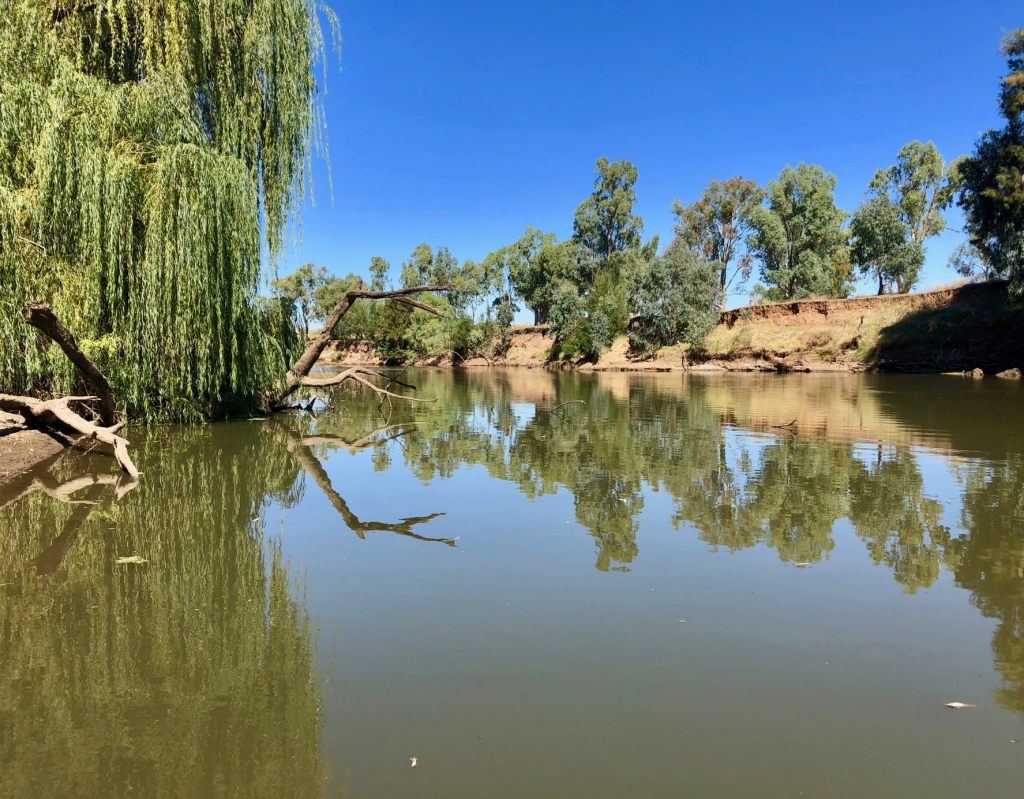Navigating the Murray Darling Basin Plan - should we all draw swords?
The MDBP continues to ignite tensions and emotion but, like many others, Rural Property NSW would prefer to see constructive progress in the management of the Basin.

Unless you have been residing on another planet, the Murray-Darling Basin Plan has been at the forefront of social media and metropolitan and regional media for many months now.
In the one corner have been its critics and in the other its defenders. In essence, the critics comprise dryland farmers and both dryland and irrigators in southern regions, and in the other corner are irrigators and cotton growers in northern regions, including those in southern Queensland.
The arguments have been largely black and white, with little give or take between the two, including an unwillingness to cooperate or compromise in the critics corner.
Unfortunately, the debate has degenerated into a media and political shouting match which is pitting farmer against farmer - an unhealthy development.
It’s often said that conclusions should always be based on a rational evaluation of information, rather than the gut feelings and biases that sometimes cloud our judgment.
If we apply this to the Murray-Darling debate, our judgement and response should be based on facts rather than emotion, and on the authenticity of that information
We know this is difficult, because we are all operating in a new era of uncertainty. Public trust in government, corporations, media and other institutions has been undermined. Unsubstantiated opinion appears in the media as often as factually correct stories.
We are in danger of letting social media, and the opinions of our online friends, become our primary news source. We’ve seldom faced such widespread distrust. This is an era of shifting allegiances, consumer distrust, and media volatility.
Given these circumstances and developments, how do we analyse what’s really happening in the Murray-Darling Basin (MDB)?
Let’s look first at the slanging match between southern and northern MDB constituents. Southerners argue that they are being mistreated, sheeting the blame on mismanagement, political indifference and apathy—blinded by anything but the drought.
Northerners, emotionally damaged, disillusioned and traumatised by recent socioeconomic, environmental and climatic events, feel they have been banished to the naughty corner.
Yet if you look at the data, the southern Basin, which stores 16,2196GL of all water in the Basin (76% of the total) currently holds 37% of all water in storage or 5953GL.
In contrast, the Northern Basin, which stores 5158GL of all water in the Basin (24% of the total) currently holds just 11% or 569GL.
Why the scorched earth criticism from southerners?
As noted recently by the MDBA, across the Basin we have 6932GL of water in storage right now, which translates to 30 per cent of capacity (it was 52% this time last year): that’s the real problem.
It noted that the southern Basin is in better shape than the north, with what is widely regarded as the southern drought reserve, Dartmouth Dam, currently holding just over one third of the water held in storage in the entire Basin.
There is no chance that this water will ever flow uphill to the northern Basin!
As noted recently by the Commonwealth Water Holder, given the environmental needs of the northern Basin, low allocations in 2018-19, and the water restriction policies currently in place in northern NSW catchments, there is anticipated to be very low volumes of Commonwealth environmental water carried over into the 2019-20 water year in the northern Basin.
And as the Murray Darling Basin Authority said recently, regardless of the climate, the Water Act does not allow water earmarked for the environment to be returned to farmers either on loan or as a gift. There is provision, however, for environmental water to be sold on the open market, for anyone to purchase, strictly on condition that the environment doesn't suffer as a result. No relief likely there.
Thus environment managers trying to sustain river ecosystems; irrigators trying to sustain production; and dryland producers trying to survive, are all under the pump caused by a water storage deficit and a lack of rainfall.
The answer is not to shout abuse at each other across farm, organization or political boundaries, but to knuckle down and try to personally manage the risks ahead; injecting cooperation, communication, coordination and compromise into those strategies.
It would be better for us all the focus on this. Let’s postpone ‘pausing’ plans, amending legislation and digging the boot into bureaucrats and politicians for now.
in Latest News
Share this post
Posts this year
- October 2024 (1)
- September 2024 (1)
- August 2024 (1)
- November 2023 (1)
- June 2023 (1)
- February 2023 (2)
- November 2022 (1)
- October 2022 (1)
- July 2022 (2)
- June 2022 (1)
Archived Posts
- Posts in 2023
- Posts in 2022
- Posts in 2021
- Posts in 2020
- Posts in 2019
- Posts in 2018
- Posts in 2017
- Posts in 2016